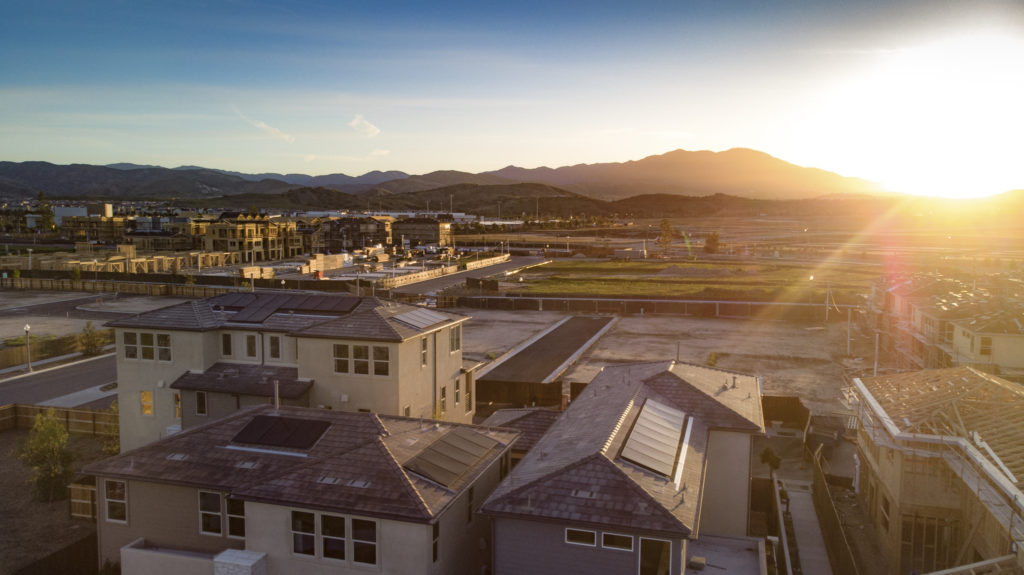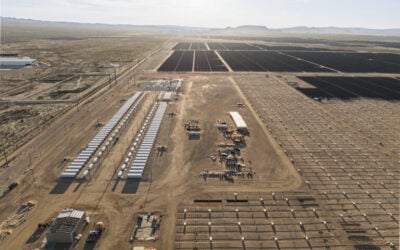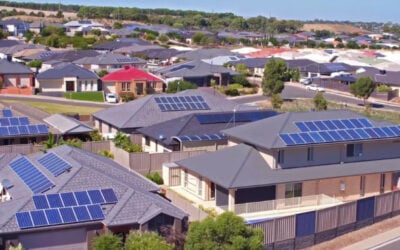
US residential solar company Sunnova and distributed energy resource (DER) controls platform provider AutoGrid will aggregate home battery energy storage systems to provide demand response for California energy supplier Clean Power Alliance (CPA).
AutoGrid’s Flex platform will be used to create a scalable virtual power plant (VPP) solution from Sunnova customers’ battery units in Southern California. CPA provides energy to around three million people via a million accounts in Los Angeles and Ventura County.
Enjoy 12 months of exclusive analysis
- Regular insight and analysis of the industry’s biggest developments
- In-depth interviews with the industry’s leading figures
- Annual digital subscription to the PV Tech Power journal
- Discounts on Solar Media’s portfolio of events, in-person and virtual
As one of California’s growing number of community choice aggregator (CCA) electricity suppliers, CPA gives its customers options of where and from what sources their power comes from, while continuing to use the grid infrastructure of the state’s three large investor-owned utilities (IOUs), in this case Southern California Edison (SCE).
CPA has been prolific in signing contracts with utility-scale solar-plus-storage projects around California over the last couple of years, including a 15-year power purchase agreement (PPA) signed with EDF Renewables a few weeks ago for a 300MW PV plant with a 600MWh battery energy storage system (BESS), a 15-year PPA signed with developer sPower for a 56MW solar project with 28MW / 112MWh battery and several more that Energy-Storage.news has reported on.
With California committing to a 100% carbon-free grid by 2045 and the state currently experiencing a multi-gigawatt shortfall in energy during summer peak periods and heatwaves, the need for clean energy resources to help control peak demand as well as to provide capacity is acute. The state recently began making the most of the potential of demand response with incentive programmes and technical criteria for its use.
The Flex cloud-based platform will be used to optimise and dispatch Sunnova’s fleet of customer energy storage systems as needed by the CCA to help customers and the grid to manage what the solar company described as “sustained energy demand challenges”.
“In the wake of the state’s ongoing wildfires and increased grid outages, the 21st century homeowner is increasingly seeking reliable and affordable energy for their family’s needs,” Sunnova executive VP and chief marketing and growth officer Michael Grasso said.
“By committing the much needed behind the meter capacity from Sunnova’s Southern California customers while using AutoGrid’s Flex platform, homeowners will now be able to directly contribute to making their own local grid more stable and efficient by providing it with clean, resilient and distributed resources.”
In an article republished on this site in June 2020 after appearing first in our quarterly journal, PV Tech Power, AutoGrid’s general manager and VP for new energy Rahul Kar wrote that integrating distributed energy resources like solar, battery storage and smart thermostats “optimally — while maintaining grid reliability, delivering value, and maintaining customer preferences — is not an easy problem to solve”.
Kar wrote that the tremendous potential to create grid flexibility using these resources can be tapped with artificial intelligence (AI) such as that built into the Flex platform. AI can handle the flexibility and drive the scale needed to create meaningful VPP programmes, with optimisers fed by load and generation forecasts.
AutoGrid already works with a number of partners in 12 countries, having more than 5,000MW of assets under contract. It is already providing its software to one of the US’ leading residential solar and storage install and leasing companies, Sunrun. In April it signed a deal for its VPP solution to be marketed in Japan with tech company Fujitsu and has already been in that country since 2019 through a partnership with energy management group ENERES.
Most recently, Energy-Storage.news reported in July that US electric school bus fleets could be turned into 1GW of VPP resources, through a partnership the DER AI software-as-a-service company signed up to with student transport supplier Zum Services.
Sunnova meanwhile has more than 162,000 customers, representing nearly a gigawatt of its own solar energy systems in the field in the US. In July, CEO William Berger said the company was focused on the “long-term energy service offering” that customers are now expecting.
Grid services software for aggregation was one aspect of that offering that Berger talked up and earlier that month Sunnova announced a partnership to help provide stability to the grid via voltage support, in New England with solar inverter and energy management solution company SolarEdge and National Grid.






